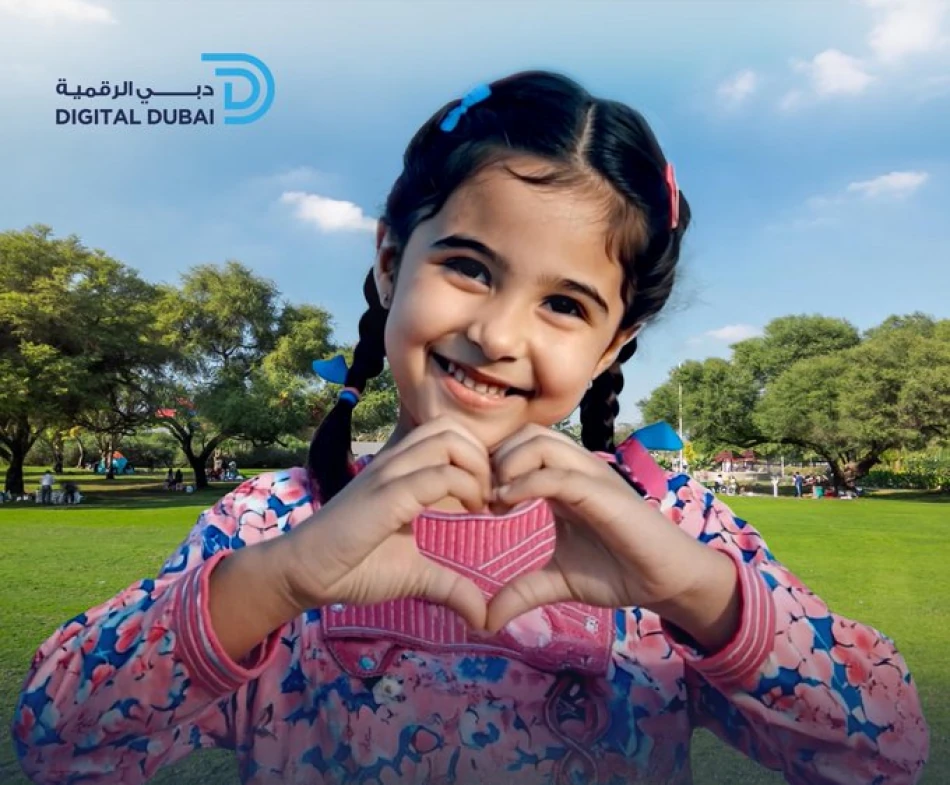
Digital Dubai Launches UAE's First Virtual Family: A Groundbreaking Leap into the Digital Future
Dubai Launches AI-Powered Virtual Emirati Family to Transform Government Communication
Dubai Digital Authority has unveiled the UAE's first AI-driven virtual Emirati family, marking a bold experiment in using artificial intelligence to humanize government messaging and bridge the gap between digital services and citizens. This innovative approach positions Dubai at the forefront of nations exploring virtual personas as tools for public engagement and service delivery.
Beyond Traditional Digital Government
The virtual family initiative represents more than just technological showcase—it's a strategic pivot toward making government communication more relatable and accessible. The AI-powered characters are designed to reflect Emirati society's values and aspirations while promoting Dubai's vision of a smarter, more sustainable future.
Currently featuring initial family members, the project will expand to include father, mother, and sibling characters, creating a comprehensive digital representation of an Emirati household. Each persona utilizes advanced AI and data analytics to deliver educational content about Dubai's digital services in an engaging format that resonates across different demographic segments.
The Strategic Context
Dubai's Digital Leadership Ambitions
This initiative aligns with Dubai's broader strategy to become the world's smartest city by 2025. Unlike traditional government portals or chatbots, virtual family members can create emotional connections with users, potentially increasing engagement rates and service adoption—critical metrics for digital transformation success.
The timing is particularly significant as governments worldwide struggle with digital service uptake. While countries like Estonia and Singapore have excelled in digital government infrastructure, user engagement remains a persistent challenge that Dubai appears determined to solve through innovative human-AI interaction.
Regional Innovation Race
The virtual family concept puts Dubai ahead of regional competitors in the Gulf's ongoing technology leadership race. While Saudi Arabia has invested heavily in NEOM's futuristic city concepts and the UAE has embraced AI in various sectors, this represents the first comprehensive attempt to create culturally authentic virtual government representatives in the Middle East.
Market and Implementation Implications
Technology Sector Impact
For AI and digital services companies, Dubai's initiative signals growing government appetite for sophisticated virtual persona technologies. This could accelerate investment in Arabic-language AI development and culturally-aware digital interaction systems—areas where significant technical gaps still exist compared to Western markets.
The project's success or failure will likely influence similar initiatives across the Gulf Cooperation Council countries, potentially creating a substantial regional market for government-focused AI applications.
Citizen Engagement Revolution
If successful, the virtual family model could fundamentally change how citizens interact with government services. Rather than navigating complex websites or waiting in call queues, residents might soon discuss visa renewals with a virtual Emirati father or learn about business licenses from an AI-powered mother figure.
This approach addresses a critical weakness in current e-government strategies: the lack of human touch in digital interactions. By combining cultural authenticity with AI capabilities, Dubai is betting that citizens will embrace virtual representatives who understand local context and communicate in familiar, family-oriented frameworks.
Challenges and Opportunities Ahead
The initiative faces significant hurdles, including ensuring cultural sensitivity, maintaining authentic dialogue capabilities, and avoiding the uncanny valley effect that often plagues virtual human projects. Success will depend heavily on the quality of AI training data and the system's ability to handle complex, nuanced conversations about government services.
However, if Dubai can execute this vision effectively, it may establish a new global standard for government-citizen digital interaction, potentially licensing the technology to other nations seeking to modernize their public service delivery while maintaining cultural identity.
Most Viewed News

 Sara Khaled
Sara Khaled






